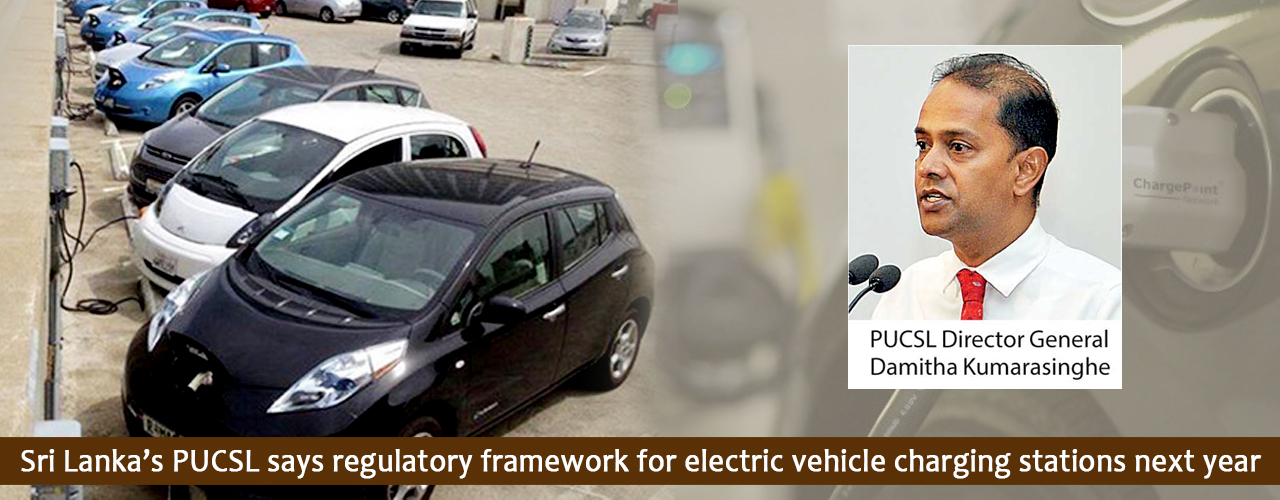Sri Lanka’s PUCSL says regulatory framework for electric vehicle charging stations next year
The Public Utilities Commission (PUCSL) of Sri Lanka has announced that the regulatory framework for electric vehicle charging stations (EVCS), consumer rights and other related areas would come into effect by the middle of 2018.
PUCSL Director General Damitha Kumarasinghe has been quoted in the media as saying that the Commission expects to draft the identified regulatory measures resulting from the discussion to be effective during the first half of 2018.
“We expect the regulatory framework for EVCS, consumer rights and related areas to be effective by the middle of 2018,” he has said.
In March, the government of Sri Lanka has introduced fresh measures to regulate EVCS around the country and assigned the PUCSL to monitor the sector until the rules were formally put in place.
Kumarasinghe has said the Commission looks forward to submitting a report by November 15th based on the views and proposals shared by the automobile companies, consumer associations, investors, industrialists and individuals to further improve the regulatory framework.
In addition, a separate policy guidelines report relating to the ministries and other institutions is to be ompiled by November 21st.
The Cabinet paper presented by Prime Minister Ranil Wickremesinghe as the Minister of National Policies and Economic Affairs to introduce amendments to the Sri Lanka Electricity Act to enable the monitoring of EVCS, to enforce user tariffs and licensing as well as safety and technical standards was approved by the Cabinet in March.
According to the Cabinet paper, battery charging is categorised as fast chargers, simple socket outlets, non-contact charging and battery swapping, and are subject to low ‘industry’ category electricity tariffs.
Kumarasinghe has noted that the views expressed by the stakeholders were crucial for the Commission to prepare the regulatory framework for the benefit of the country.
There are over 50 service stations established island-wide at present and they remain unregulated due to a lack of proper legislation and close to 5,000 electric cars are on the roads in Sri Lanka.
OSL take:
The introduction of a regulatory framework for the charging station of electric cars indicates a growing trend in the use of electric cars in the country. Therefore, apart from setting up charging stations, an innovative investor could look at the possibility of setting up one stop shops along with the electric vehicle charging stations.
| Article Code : | VBS/AT/23102017/Z_3 |

